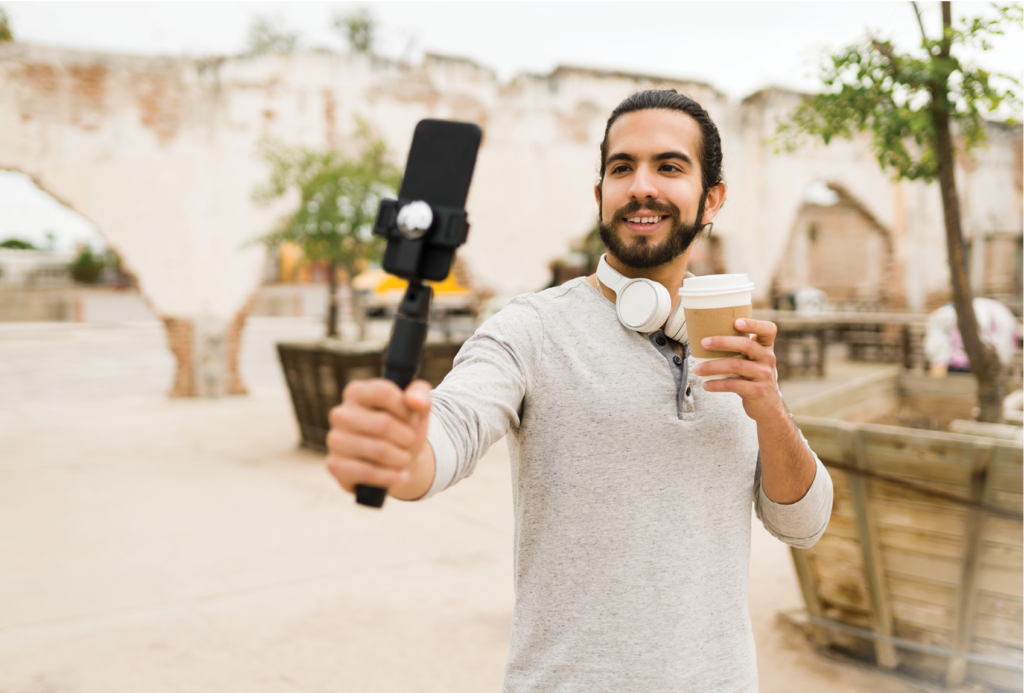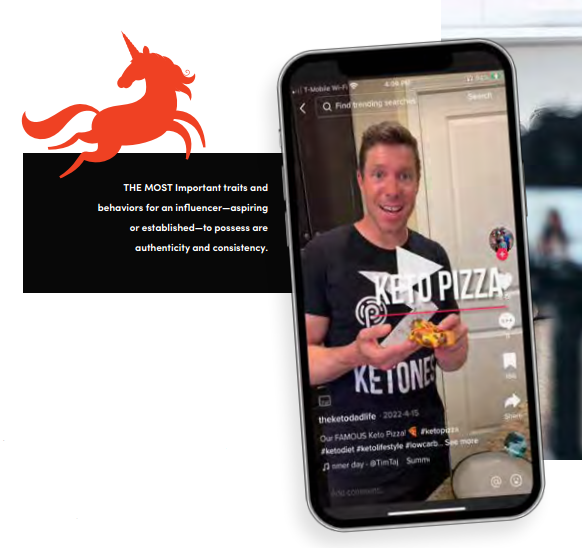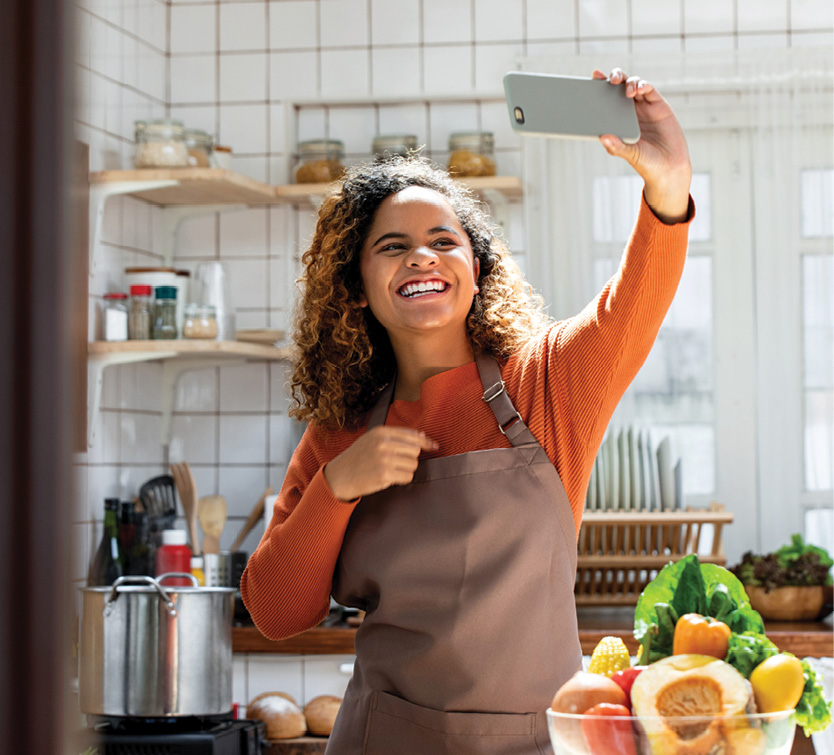How to find, develop, encourage and promote your budding viral superstars.

If there is one constant refrain in today’s direct selling channel, it’s change.
One of the most talked about and watched segments of change within the industry is the emergence of social selling. As the channel continues to embrace and seek out influencers into their affiliate programs and more and more sales begin to happen online, the importance of finding and nurturing charismatic distributors to represent your brand continues to grow.
But how do companies find or develop the best influencers? Should you look for diamonds in the rough in your field with genuine enthusiasm and belief in your products or seek out established influencers with built-in followers and charisma to spare? And how can you best partner with them to allow them to shine while still protecting your brand?
Part of a Bigger Picture
Affiliate marketing isn’t just an opportunity for direct selling companies—everyone is getting into the game. According to DemandSage, affiliate marketing has a market value of $17 billion as of 2023, and 80 percent of all brands have some sort of affiliate program.
It’s a natural fit for direct selling—both are grounded in the philosophy of marketing powerful products through personal recommendations. Affiliate and influencer programs allow direct selling companies to use the power and reach of social media without losing the personal touch and connection that has always been the channel’s biggest differentiator.
Affiliate programs can’t (and shouldn’t) entirely replace the traditional team building approach—but they do offer a viable and attractive alternative to people who might not be interested in the more established and expected version of the channel.
This has led many companies to adopt a two-pronged approach, offering both traditional multi-tiered compensation models that reward team building, while also developing simplified affiliate programs that allow those not interested in team building to still earn an attractive commission by sharing and recommending their products on social media.

This model alleviates some of the pressure of quick conversion and team building that historically kept some people away from the opportunity. As Qyral Founder and CEO Hanieh Sigari explained, “Social media has changed the way that direct selling works. You don’t have to cold call people or knock on doors and try to pitch them hard in 30 seconds. You can have honest, normal conversations about shared interests. We aren’t ever going to push our consultants to sign people up. It’s not for everyone. Instead, we’ve developed programs for the women who want to be superstars and build a team and other programs for those who just want amazing skin.”
It’s an approach that strongly resonates with online influencers who recognize the value and opportunity of partnering with direct sellers. Nick Martinez, the Keto Dad, who represents Prüvit products, finds that this fundamental shift eliminates resistance to recruitment and works to further legitimize the opportunity. “In the past you had to have a downline of people who each had a few customers to earn a significant income. Now the reverse can be true—you could have a small group of distributors with tons of customers, and as a result you are making significant income.”
Taylor Novarro, an Account Executive at Sunwest Communications who works closely with direct selling brands, is also an emerging online influencer. She feels the collaboration is a home run for both parties. “As an influencer, I take the time to learn about and try the products I am recommending. For me, it’s about creating a brand that consumers know and trust—and helping our clients to do the same. Independent direct sellers can work like influencers by staying focused on their knowledge of the brand and products they know and love.”
The Right Person with the Right Message

While the value proposition of including influencers in your marketing mix is undeniable, the best approach to finding the right person is still up for debate. Brands can choose to partner with established influencers who represent more than one brand or look to their field to find distributors with a natural ability on camera and nurture and support their organic growth.
Established influencers come with the benefit of already having created some name recognition within their niche. The best ones truly believe in the brands they represent and want a simple, frictionless way to recommend products they love and earn a simple commission for their efforts. They have no interest in traditional team building and recruitment. Online consumers often feel tremendous loyalty to the influencers they follow. But these influencers are less likely to stay with your brand long term and don’t have the same passion and commitment as a distributor who is solely focused on your products.
Conversely, consultants that are also creating and sharing content online are already a part of your sales force—something about your corporate culture and product line moved them to join your community. So, while they have a smaller social media network initially—given the right chemistry and opportunity—they can grow their fan base exponentially, becoming a nano-influencer for your brand. What approach is best: outside influencer, homegrown or hybrid? There is no one-size-fits-all answer.
Amber Olson Rourke, Co-Founder and Chief Sales and Marketing Officer of Neora shared, “I believe developing influencers internally is more effective long term. It will take longer. You won’t get as much instant gratification, but they will stay longer and be more invested in the brand than a traditional influencer who is likely to move on to their next brand deal.”
Red Aspen takes a hybrid approach. As Co-Founder and CEO Jesse McKinney explained, “We do both, and we don’t have a preference. We’ve got influencers with hundreds of thousands of followers. They are in a different place in their journey. They’ve done the work. But we love watching newcomers join Red Aspen and build organically. That’s the magic of direct selling—it transforms people, and it is a gift for me personally to witness it happening in real time.”
A Genuine Asset
While there are different philosophies on whether established influencers or developing ones within the field is the best choice, what there is unanimous agreement on is the most important traits and behaviors for an influencer—aspiring or established—to possess: authenticity and consistency.
As Sigari explained, “Being an influencer isn’t just a matter of turning on a camera and making cute videos. It’s important to be yourself because there are so many people on social media who try to portray themselves as someone they aren’t. Yes, you want to be professional and positive, but it’s okay if the world knows you aren’t perfect.”
McKinney expressed the same sentiments. “Authenticity and consistency go hand-in-hand. I encourage people to be as perfect or imperfect as they are in their lives. But it’s equally important that they be consistent and determined to show up every day in one way or another. They have to establish that rhythm. And they have to believe that they are interesting just by being themselves. Authenticity is fascinating, and it’s relatable.”
That echoes the advice Martinez offers to aspiring influencers when they are just starting to build. “One component that is super important is simply being yourself. If distributors step into more of who they are and show that to the world, their tribe will appear. If you are not congruent to who you are to the core, there will be a disconnect that may work in the short term but will not lead to long-term attraction.”
Messaging that Matters
While it’s exciting and trailblazing for companies to allow these influencers to be themselves and create their own content, it also presents some fundamental marketing challenges. Building a brand that consumers love takes time—and a lot of work and money on the part of the company.

Crafting the perfect messaging, packaging and brand standards is not easy. But this kind of brand building matters and adds inherent value to the company that can’t be overlooked. Relinquishing complete control of this hard work to influencers is enough to make any corporate marketing executive squirm. But surprisingly, direct selling brands are finding that it’s ultimately not as important as they thought.
“The brand partner or the influencer really owns the story-telling aspect. How does the product or business impact their life? Why do they like it? What value would it bring to their followers? And they need the freedom to tell that story creatively. It is not going to sound exactly how the brand would tell that story—which is ok because it will resonate with their target market best if it is told authentically by them,” explained Olson. “The brand’s biggest role is to support them by providing the information they need to ensure the content is accurate and within compliance.”
Sigari agreed, “We have to protect our brand, but they also need to control theirs. The best influencer relationships are when our brands align and there’s synchronicity between our ethos and ambitions.”
And McKinney added, “Honestly, we don’t worry about how they represent the brand that much. Whether they are doing home parties, popups or lives, they are telling their story, not ours. We give them the tools they need to do so.”

Those tools can include anything from early access to new products so distributors can create personalized content around it at Red Aspen to the boot camp training videos, live trainings and graphics support offered by Neora.
This level of cooperation and collaboration attracts the right influencers as well. As Novarro shared, “I enjoy working with brands that are realistic and allow me to be creative and use my insight in what we’re working on.”
Martinez explained how much he appreciates the value Prüvit’s corporate team gives his input. “They believe that the best ideas come from the field where the work is being done and from those who are communicating with the consumers on a daily basis. We work with them to create the right promotions, campaigns and new products.”
Focused on Fundamentals
Even with all the benefits of a robust and proactive influencer program, companies must also focus on the key fundamentals that allow the resulting online purchases to be as frictionless as possible for both the affiliates and the customer. It’s important to also prioritize seamless checkout, personalized customer loyalty and referral programs and live shopping opportunities.
But in the end it all comes down to the authenticity of the medium and the messaging. As Novarro said. “Nothing is easier to spot and see through than an influencer who is only representing a product to get paid. I would recommend that direct selling brands seek out influencers who already enjoy your products—or would genuinely like to try them and provide feedback. Seeking out influencers inside and outside of your brand will help you grow your reach and support your salesforce.”
From the March 2023 issue of Direct Selling News magazine.


